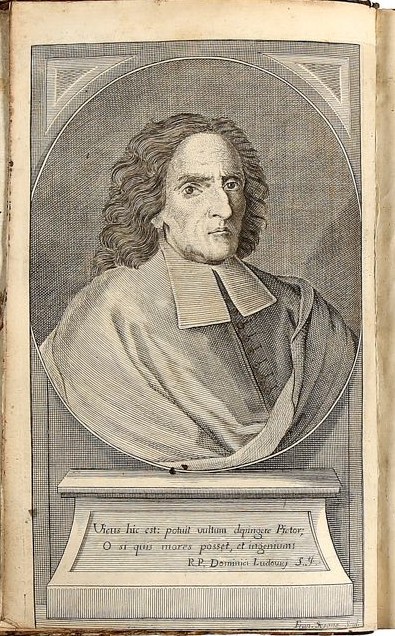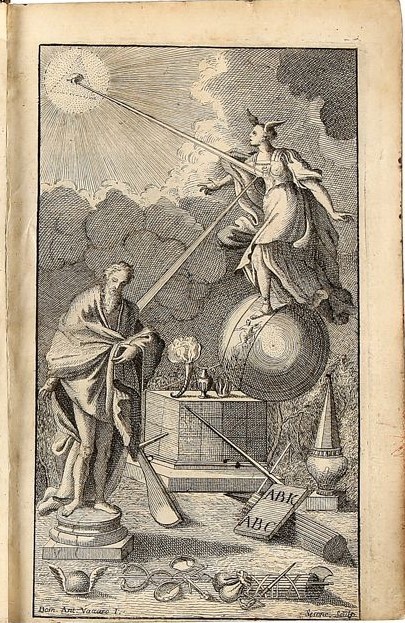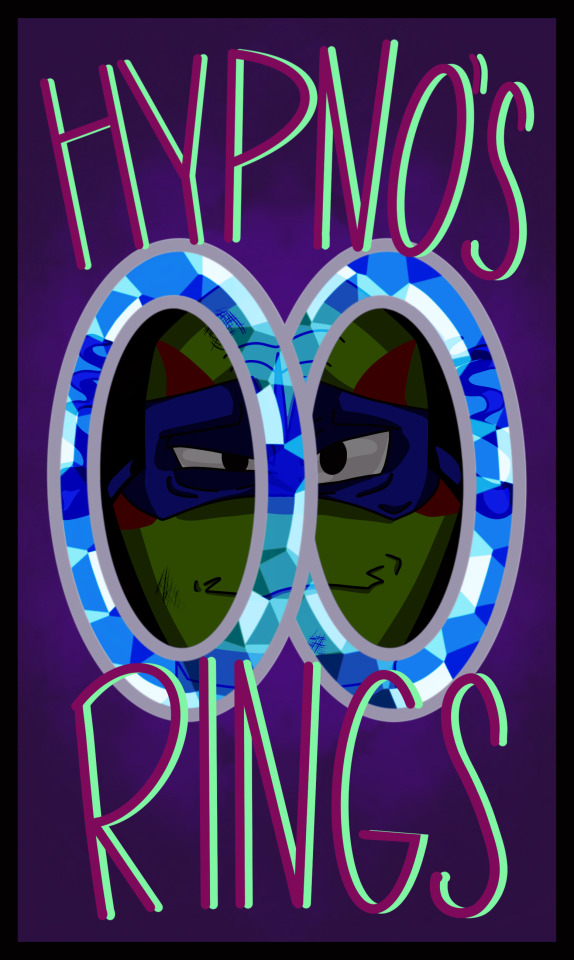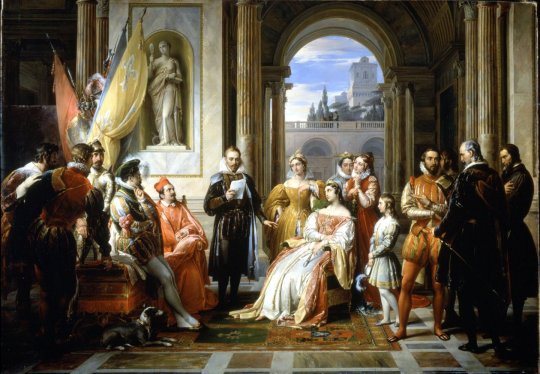#Giambattista Vico
Text


Giambattista Vico, New Science
#giambattista vico#isn’t it still amazing to see this discovery happening in ‘real time’? this idea? books are cool
34 notes
·
View notes
Note
Hello! I was appreciatively looking through your blog, and was curious: in a reblog of a Baudrillard quote (something like “Art is dead … [and] … has been confused with its own image”) you disagreed in the tags. I’d love to know your thoughts on why, if you don’t mind sharing them.
[i’ll post the Baudrillard quote in question below, for people just coming across this]
Hello, thanks for your question, and kind words; I don’t mind at all.
First, and most importantly of all. ‘Art is dead.’ In contemplating this statement: abjure your intellect and instead, for a moment, listen to the body. Ask yourself what you experience, and whether art is alive.
After that try this: make a slightly pouty, disappointed face and, one fist against your hip, say aloud ‘Art is dead !!’ … without making yourself laugh.
Baurdrillard’s in a funk here and just talking big. I recognise this line of thinking in myself sometimes. Speaking in large round denunciations is a real kick. I don’t castigate him for this, and his writing is well formed and provocative. Fine qualities, in my book — yet at source, this particular sentiment is merely a semi-hysterical reaction to sheer satiation of data I think, a point of view formed beyond the boundary line of dissipation. One reads, listens, views, discusses, dreams even, incessantly … until you reach a point where reference and connection, in everything, endlessly spools and crisscrosses in a sort of Borgesian organised-chaos and, often, instead of being pleasurably intoxicated by this, it induces in one a kind of wrecking impulse. I think a certain sort of person – a bit grandiose this but let’s call them art-worshippers – I think most of us feel this dissipation from time to time. The ego plays a big part in this too: ‘I see all their tricks; they can’t fool me.’ After writing the Sirens episode in Ulysses Joyce, the great music lover, complained for years that he couldn’t enjoy it any longer. Explaining this in a letter he said miserably, ‘Music: I can suddenly see through it all.’
Oddly enough and pertinent to Baudrillard’s statement, I read a curious book this year, non-fiction, called ‘Reality Hunger’ by David Shields. The title alone does a lot of the heavy lifting for me in trying to explain it, but broadly he explores through our various conditional responses to art our corresponding sense of reality – the pleasurable and its obverse – in a collection of around 600 quotes he’s gathered over the decades, interspersed with his own thoughts and observations: crucially, after each aphoristic reference, some generationally famous, many less so, and of course his own original words, he never states who the quotes are from (for legal reasons he begrudgingly appends their names at the back of the book, but provides a cutting line on the inner margin of each page and asks you to take the scissors to them) and so it forms after not very long an ever-increasing eerie experience for the reader with the effect of creating a curious interplay and loop of reference that, in the end, is seemingly connected to everything else certainly within but also much externally; becoming in totality, for me at least, its own living artistic expression. Now, this is fascinating because Shields on many days you suspect would wholeheartedly agree with the Baurdillard statement and yet, by dint of his own book, one often expressing this concord of feeling, proves it defunct.
Joyce, via his obsession with the enlightenment historian and philosopher Giambattista Vico, is the great artistic patron of this cyclical motif, where everything is (or was; or will be in the future) potentially everything else, and history itself, over large swathes of time and incalculable complexity, falls within the gravity and metric of some unknown universal fractal-like law. Both Ulysses and Finnegans Wake, I’d argue, above all other characteristics, is about this, and where for Baurdrillard (at least here) this is a drag, for Joyce it is the life and wellspring of all art and, indeed, human existence.
——————————————-

6 notes
·
View notes
Photo




Giambattista Vico – Scientist of the Day
Giambattista Vico, an Italian philosopher, was born June 23, 1668, in Naples.
Learn more
#Giambattista Vico#historical thought#historicism#histsci#histSTM#18th century#history of science#Ashworth#Scientist of the Day
23 notes
·
View notes
Text

Der zweite Augustgast
1.
Der August ist am MPI ein stiller Monat. Wir haben aber einen Gast, der ist fünf Wochen ein Praktikant in der Abteilung Rechtstheorie: Tom Sczimarowsky. Nach dem ersten Augustgast, the next big Friedrich, ist Tom nun schon der zweite Augustgast. Ab jetzt kommen Augustgäste in Serie vor, ab jetzt gibt es Ehemalige, Alumni oder Veteranen, ab jetzt könnten sie einen Verein, einen Club oder Bund bilden. Nach einem brillianten Abitur hat Herr Sczimarowsky, also der zweite Augustgast, u.a. Kunstgeschichte und Archäologie in Münster studiert, ist jetzt Student der Rechtswissenschaft an der Bucerius Law School in Hamburg - wo ich ihn als Teilnehmer der 'Anfängerübung' zur Grundlagenforschung kennen gelernt habe. Tom Sczimarowsky interessiert sich für Giambattista Vico, da können wir ihn mit unserem Interesse an Kulturtechnik, Rhetorik und Bildern sehr gut gebrauchen.
2.
Tom Sczimarovsky hat mit seinem Interesse an Vico gleich ein interessantes Forschungsprojekt zum Max-Planck-Institut mitgebracht. So etwas kann sich zu einem Dissertationsprojekt auswachsen. Ich habe im Gespräch gemerkt, dass ich mal wieder gar nix über Vico weiß, seitdem schaue ich mir einiges an - und Jürgen Trabant, hurra, hat es tatsächlich geschafft, angeblich dank COVID, endlich seine neue Übersetzung der Scienza Nouva fertigzustellen, die ist auch schon erschienen. Es gibt neue englische Übersetzungen - und es sind in den letzten Jahren auch interssante Texte erschienen, die sowohl auf Vicos Verhältnis zu Bildern als auch auf das Verhältnis zum Recht eingehen. Superstoff hat Herr Sczimarovsky also mitgebracht, da freue ich mich gleich noch mehr darauf, im kommenden Januar wieder an der Bucerius Law School zu unterrichten. Ich glaube ja, dass sie an dieser privaten Schule, anders als an jetzt zwar naheliegenden aber lieber ungenannten Orten, weitgehend schnarchnasen- und verhindererfrei sind. Vielleicht glaube ich das, weil Warburg auch aus Hamburg kommt und mit einer privaten Praxis öffentlicher Dinge die interessantesten Rechtsgeschichte und Rechtstheorie entworfen hat, vielleicht glaube ich das nur deswegen, weil meine Erfahrung mit deutschen, staatlichen Fakultäten und Fachbereichen nicht die besten wären, während es an Fakultäten außerhalb deutscher staatlicher Rechtswissenschaft immer fantastisch lief.
Domenico Antonio Vaccaro sticht ein Bild, das italienisch als dipintura bezeichnet wird. In einer der Auflagen der Scienza Nouva ist dieses Bild das Frontispiz des Textes. Dipintura ist meines Erachtens ein besonderer, technischer Bildbegriff, vergleichbar mit dem Bildbegriff argumentum (vgl. Steinhauer, Bildregeln 2009), der in der frühen Neuzeit kursierte. Dipintura ist ein Bild, das einem Text vorangestellt ist und das den Gedankengang, Gegenstand und Gliederung der Argumentation vorführen soll. Das Bild soll eine Übersicht über den folgenden Text liefern, Vico sagt u.a. auch, der Text solle so leichter memorierbar sein. Die Scienza Nuovo beginnt insofern mit einem Bild - und mit einem ersten Kapitel, das ein längerer Kommentar zu dem Bild, eine Bildbeschreibung ist. Das erste Kapitel steht wie ein Übersetzung zwischen dem Bild und den dann folgenden, allen weiteren Kapiteln. Vico, der als Jurist ausgebildet wurde und sich auch um einen Lehrstuhl für Recht bewarb, war an der Universität in Neapel als Professor für Rhetorik tätig, als auch dem Gebiet einer der historischen, juridischen Kulturtechniken. Die Rhetorik ist nicht die einzige juridische Kulturtechnik, zumal Rhetorik auch eher der Name einer Disziplin wurde und damit der Begriff eine Reihe von Kulturtechniken bündelt. Nicht nur Rhetorik, alle "Sekretärskenntnisse", alle gesellschaftlichen Techniken des Schreibens, Lesens, der Bildgebung, des Wissen-Machens, Wissen-Lassens, des Erscheinens und Schein-Machens, des Auftritts, der Feier, des Tanzes und des Tafelns sind zumindest bis Anfang des 19. Jahrhunderts klassiche juridische Kulturtechniken. Grammatik, Orthographie, Poetik sind wie Rhetorik juridische Kulturtechniken; Kameralistik, Policey- und Staatswissenschaften, Zeremonialwissenschaft: sie lehren juridische Kulturtechnik. Rhetorik ist also nicht die einzige Kulturtechnik, aber ein herausragendes historisches Beispiel. Vico lehrt in diesem Fach.
Seine neue Wissenschaft ist nicht nur Kulturwissenschaft, sie ist auch Rechtswissenschaft - und wie so viele Beiträge zu den juridischen Kulturtechniken findet die Lektüre der neue Wissenschaft später häufig unter dem Dogma der großen Trennung statt. Weil die Assoziation zum Recht nicht geleugnet werden kann, weil die vielen Referenzen zum römischen Recht in Vicos Text nicht übersehen werden können, wird diese Wissenschaft unterhalb der Schwelle der Rechtswissenschaft verortet. Hoffentlich einfacher gesagt unterstellen manche wohl folgendes: Wenn es Kulturwissenschaft ist, dann könne es keine richtige Rechtswissenschaft sein, nur so eine Art Halbwissenschaft vom Recht - das legen manche mit ihren Techniken der Übersetzung und Reinigung später dann Rechtswissenschaften nahe, für die Recht nur Recht sein soll und nur Recht Recht sein soll, in denen vor der Rechtswissenschaft ein epistemisches Monopol eingerichtet sein soll, das mit dem Beratungsmonopol der durch Staatsexamen qualifizierten Juristen korrespondieren soll. Vico schreibt in einer Zeit, in der noch nicht nur Juristen so richtig wissen soll, was Recht ist. Es gibt schon lange einen Juristenstand, aber das epistemische Monopol ist im 18. Jahrhundert noch nicht gesichert.
3.
Natürlich gibt es bei Vico ein Kapitel über Letter und Buchstaben. Er ist einer der Autoren, die in neuen Darstellungen zu Recht und Medien unterschlagen werden, um dort sagen zu können, bisher hätten Juristen nicht über die Bedeutung von Medien richtig nachgedacht - und erst die modernen, amerikanischen Geschichten und Theorien von Medien des Abendlandes hätten die Bedeutung der Schrift für eine westliche, rationale und rechtlich organisierte Gesellschaft gezeigt. Das ist in gewisser Hinsicht Unsinn. Seit dem es Rechtswissenschaft gibt, gibt es auch Medienwissenschaften, schon weil es Rechtswissenschaft erst in dem Moment gab, als Juristen zu allem in der Welt und außerhlab von ihr, also zu allen, wie es einmal heißt, menschlichen und göttlichen Dingen etwas zu sagen haben wollten, nämlich unter anderem ja oder nein.
Vico ist also einer zahlreichen Juristen, die auch Medienhistoriker und Medientheoretiker, vor allem aber Medienpratiker sind. Dass es in dem Buch ein Kapitel zu lettern gibt, wird auf dem Bild schon angekündigt: da liegt eine Tafel (ein dogmatisches Medium), darauf zwei Zeilen mit jeweils drei Lettern zu Anfängen zweier, ähnlicher Alphabete: ABK, ABC. Wird die Welt lesbar, da wird sie legal: Die dichte Behauptung wird überdenken lassen, was Lesbarkeit und was Legalität, was Gesetz und was logos heißen soll.
#tom Sczimarowsky#giambattista vico#domenico antonio vaccaro#dipintura#frontispiz#scienza nuova#letter
2 notes
·
View notes
Text

SYDNEY SWEENEY IN GIAMBATTISTA VALLI @ LACMA GALA 2022
17 notes
·
View notes
Text
Picasso Trigger (1988) dir. Andy Sidaris
This was my 3rd Sidaris film, and, I think, my favorite so far (they’re all great, though). Made me think this is what Nicolas Winding Refn is going for. Only this is the original, so to speak. This is Vicos’ giants of the past. Not meant to denigrate Refn; not our fault, we just cannot be that, it cannot be anymore.
“Style over substance” critique is obviously a complete misunderstanding of art, but as shorthand I guess it works. This is someone who cares profoundly about the texture of their chosen form of expression (in all of it, not just sounds and colors, etc., but the very rhythms of movie making).
And the way Refn and Sidaris “repeat” their themes (and actors, etc.) is just great. I find some artists bore me with this (Botero is always my first example), while in others it’s their strength (Ballard comes to mind).

#Picasso Trigger#1988#andy sidaris#Nicolas Winding Refn#style#thoughts#movies#art#Botero#J G Ballard#repetition#Giambattista Vico#giants
2 notes
·
View notes
Text
youtube
TODAY IN PHILOSOPHY OF HISTORY
Jules Michelet and the Promise of Emancipatory History
Wednesday 21 August 2024 is the 226th anniversary of the birth of Jules Michelet (21 August 1798 – 09 February 1874), who was born in Paris on this date in 1798.
Michelet collected in his person many influences from the period that preceded him, especially in regard to the rediscovery of Vico, his life was decisively shaped by the Napoleonic empire, and he went to influence the period that followed him. Michelet, in comprehending many contemporary influences, focused in himself many of the most prominent and important themes of historical thought of his time, and his historical thought, in turn, teeming as it was with all these influences, spread out after him in succeeding generations and shaped what history become in the twentieth century.
Quora: https://philosophyofhistory.quora.com/
Discord: https://discord.gg/r3dudQvGxD
Links: https://jnnielsen.carrd.co/
Newsletter: http://eepurl.com/dMh0_-/
Text post: https://geopolicraticus.substack.com/p/jules-michelet-and-the-promise-of
Video: https://youtu.be/pH0PZB2MsH4
Podcast: https://spotifyanchor-web.app.link/e/exLflM0SeMb
#philosophy of history#youtube#Jules Michelet#Giambattista Vico#longue durée#emancipation#liberation#progress#Hayden White#romanticism#Marc Bloch#holism#historical holism#Youtube
0 notes
Text

La natura ci ha creati per la verità, l’ingegno ci guida, la meraviglia ci fa fermare, così che, quando ci penso, la cosa che veramente più mi stupisce è questa, che vi siano tanti ignoranti, poiché come il fumo è nocivo e dannoso agli occhi, lo stridìo alle orecchie, il puzzo alle narici, così l’errore, l’ignorare, l’ingannarsi sono contrari alla mente umana.
[Giambattista Vico, Le Orazioni Inaugurali (1699), Orazione I]
0 notes
Text
Ioannes Baptista a Vico – De universo iuris uno principio et fine uno
Haec vere heroica sapientia esset: aeterna vera naturae facilitate cognoscere, et, in omnibus et cum omnibus, summa libertate et agere, et loqui vera, et cum animi voluptate vivere convenienter rationi.
[HIS] Conocer las verdades eternas sobre la vida; y en todo obrar con libertad y decir la verdad; y con alegría vivir en modo conveniente a la razón. Ésta es en la tierra la plenitud humana.
#Ioannes Baptista a Vico#Giambattista Vico#De universo iuris uno principio et fine uno#saec. XVIII#1720#scriptum#philosophia
0 notes
Text
”İdeal sonsuz tarih, oldu, oluyor ve olmaya devam edecektir.'' Giambattista Vico
1 note
·
View note
Text
真理は作る(なす)ことにおいてある
立花 ヴィーコの精神があらゆる人文科学を支えているという話をしましたが、同時に、それはあらゆる自然科学と技術も支えているんです。ヴィーコ哲学のエッセンスは何かというと、〝verum ipsum factum〟(「真理は作る〔なす〕ことにおいてある」、あるいは「作ら〔なさ〕ないかぎり真理はわからない」)というところにあるんです。
『ぼくの血となり肉となった500冊 そして 血にも肉にもならなかった100冊』(文藝春秋)
立花 隆
(ジャンバッティスタ・ヴィーコ)
Giambattista Vico
0 notes
Text

an Antipoem by Thomas Merton
24 notes
·
View notes
Text
I recommend the pod at the link above, a conversation between Sean Thor Conroe and Matthias Bormuth about Vico and Auerbach. We always need more Auerbach discourse. Bormuth draws a useful distinction between the provisional Auerbach, on the one hand, and the providential Bloch, Lukács, and Brecht in the years after World War I. And when he compares Auerbach to Jesus Christ—! This sent me back to Conroe's Paris Review chronicle of a Newark Philip Roth festival from months back, which I'd missed, and which narrates his first encounter with Bormuth:
He’s a professor from Germany. Out here for a talk he gave the other day. This thing has been going for some days already, apparently. He’s an Auerbach scholar and he tells me that his case, in the book he’s working on, is that Goodbye, Columbus was influenced by Auerbach. The guy came out here, went to Roth’s reading room, his original, personal library, preserved across the hall, and found the Auerbach book, Mimesis: The Representation of Reality in Western Literature, that Roth read around that time; went so far as to find the passages Roth underlined to support his argument.
“Unreal,” I say.
His case is that Goodbye, Columbus is a debate between the ethics of the Old Testament and of Homer. Roth’s narrator has a decision he’s weighing. Either take the Homeric route, go with Brenda, a nice girl, his summer fling, and live the life she leads him on. Running around the track every morning. Living a nice suburban life. “Settling on the nymph island,” I say, which makes his eyes light up.
He looks me over and goes, “You want to sit? Put your backpack down. Get a wine.”
I put my pack down. Get a wine.
“So the other option,” he says, “is to follow the Old Testament. Renounce that life. Take the inner path. The higher calling. Follow God’s call to kill his son—renounce worldly comforts, challenge himself to commit to a life of writing. A path he knows he must take, but that no one else understands.”
“Kierkegaard,” I say.
“Kierkegaard,” he says, eyes ablaze.
Anyway, it's a good pod. For me on Auerbach see here; for me on Goodbye, Columbus, making a similar case but with parochial reference to Hawthorne rather than to Auerbach and Kierkegaard, see here.
#sean thor conroe#matthias bormuth#erich auerbach#giambattista vico#philip roth#literary criticism#literary theory
0 notes
Text
Le cose fuori del loro stato naturale né vi si adagiano né vi durano.
Giambattista Vico (Napoli, 23 giugno 1668 – Napoli, 23 gennaio 1744)
1 note
·
View note
Text






Hypno's Rings
3/4
Previous | Following
Mourning.
This one is very personal.
#everythingunderthesky comics#everything under the sky comics#rise of the teenage mutant ninja turtles#unpause rottmnt#save rottmnt#rottmnt fanart#rottmnt#rise hypno#hypno potamus#leonardo hamato#rise leo#Hypno-Potamus#Hypno's Rings#Hypno's Rings comic#Future Leo#Mentioned!#Rottmnt movie#Colors!#My beloved <3#Excerpt from text:#humanity received its Latin name “humanitas” from the Latin word “humare”#which means “to bury” -attributed to Giambattista Vico#The Last Dance: Encountering Death and Dying#Fun fact! If you recognize the cutout of post-apocalypse New York from my first “Warren's Stone” comic—it was part of this update first!#This part of the story has been a long time coming.#Hope it resonates!#Next week's update may need to be postponed#It needs more dedicated focus and during crunch time? That's awfully scarce.
46 notes
·
View notes
Text
The participating authors for the Italian Lit(erature) Tournament: the general list + a google form to add other proposals

Podesti Francesco - Torquato Tasso reading Jerusalem Delivered to the Estensi court
The start of the Italian Lit(erature) Tournament (first edition) is getting closer, but first I want to post the general list of the authors partecipants.
The principal issue is that every literary canon is constantly changing, with more critical studies over the years. I've thought about it, read and searched, and the solution I found has two parts:
I will take the principal authors from this list, which in turn is based from the studies of Gianfranco Contini and Asor Rosa. The list is too long and many names are only chronicles and essayists, so I'll chose the principal ones, trying to balance between north/south Italy and male/female authors (taking into account that many authors that we study are men). As you will see below under the cut, the list is already pretty long, doing some math the challenge will be 2/3 months long.
Still, I recognise that this isn't 100% unbiased and fair, so I opened a free and quick google form when you can add a maximum of two authors that you don't see in the list. This considerable limit is to avoid having too many names - if in some answers I see more than 2 names, I'll take into account only the first 2 listed.
IMPORTANT! 👇
After much thoughts, I also chose to don't include living authors or authors death only recently (before January 2023). The reason is simply to avoid potential issues in the community, like bashing between fandom or admirers of some specific author, or going too far like offending some people near the author still alive or recently deceased. Maybe if this tournament will end well, a second edition could be made next year and maybe with the addition of living authors! (I'm already thinking to do an italian or european cinema tournament in the future but this is still in the draft).
Under the cut, you will find the list of the authors already part of the challenge, name-surname with the surname in alphabetical order. If you don't see a name that you want to see, use the form to add it!
edit: I added the ones from the surbey so far, all in italics. There are names that have been sent but already on the list.
Dante Alighieri
Sibilla Aleramo
Vittorio Alfieri
Cecco Angiolieri
Pietro Aretino
Ludovico Ariosto
Matteo Bandello
Anna Banti
Giambattista Basile
Giorgio Bassani
Cesare Beccaria
Maria Bellonci
Pietro Bembo
Matteo Maria Boiardo
Giovanni Boccaccio
Giordano Bruno
Dino Buzzati
Italo Calvino
Andrea Camilleri
Giosuè Carducci
Guido Cavalcanti
Carlo Collodi
Vittoria Colonna
Gabriele D'Annunzio
Giacomo da Lentini
Caterina da Siena
Alba de Céspedes
Cielo (Ciullo) d'Alcamo
Edoardo De Filippo
Federico de Roberto
Grazia Deledda
Umberto Eco
Beppe Fenoglio
Marsilio Ficino
Dario Fo
Ugo Foscolo
Veronica Franco
Carlo Emilio Gadda
Natalia Ginzburg
Carlo Goldoni
Antonio Gramsci
Francesco Guicciardini
Tommaso Landolfi
Giacomo Leopardi
Carlo Levi
Primo Levi
Carla Lonzi
Niccolò Machiavelli
Alessandro Manzoni
Giovanbattista Marino
Giovanni Meli
Pietro Metastasio
Eugenio Montale
Elsa Morante
Alberto Moravia
Anna Maria Ortese
Giuseppe Parini
Goffredo Parise
Giovanni Pascoli
Pier Paolo Pasolini
Cesare Pavese
Francesco Petrarca
Luigi Pirandello
Angelo Poliziano
Luigi Pulci
Salvator Quasimodo
Gianni Rodari
Lalla Romano
Amelia Rosselli
Umberto Saba
Emilio Salgari
Jacopo Sannazaro
Goliarda Sapienza
Leonardo Sciascia
Matilde Serao
Gaspara Stampa
Mario Rigoni Stern
Italo Svevo
Antonio Tabucchi
Torquato Tasso
Giuseppe Tomasi di Lampedusa
Pier Vittorio Tondelli
Giovanni Verga
Giambattista Vico
Renata Viganò
Elio Vittorini
Giuseppe Ungaretti
#italian lit tournament#italian literature#literature challenge#literature tournament#literature#the divine comedy#dante alighieri#decameron#italo calvino#ddino buzzati#natalia gintzburg#alba de cespedes
87 notes
·
View notes